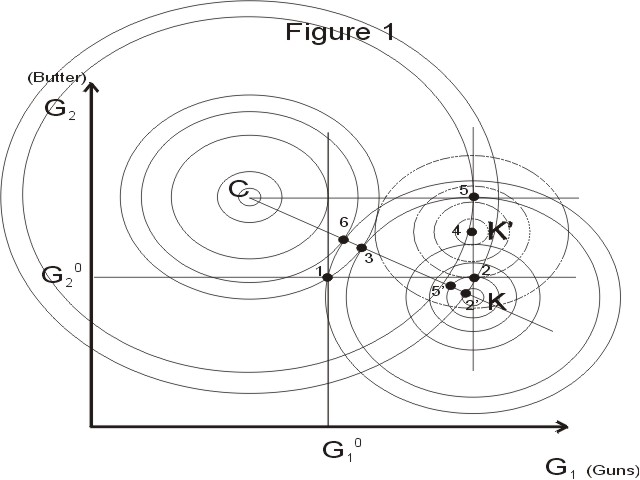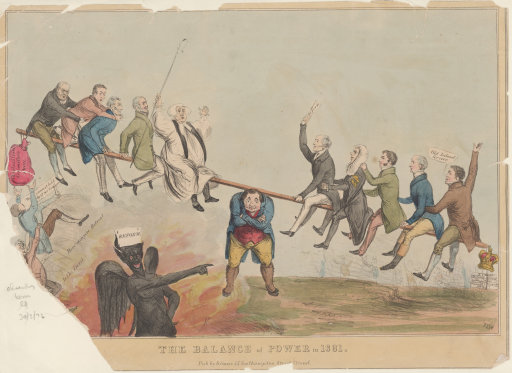| Economics Bar Ilan University |
|
Spring 2010
|
||||||||||||||||
|
|
George Mason University Office at Bar Ilan : 326 (blg 504) |
|
||||||||||||||||
| . | ||||||||||||||||||
| |
<>Suggested Texts:
Congleton, R.D. (2009) Perfecting
Parliament: Liberalism, Constitutional Reform, and the Rise of
Western
Democracy. (forthcoming 2011, Cambridge U. Press, [Part
I].) Congleton, R. D. and B. Swedenborg (2006) Democratic Constitutional Design and Public Policy. Cambridge Mass: MIT Press. |
Public Choice Society European Public Choice Society Public Choice EJPE CPE |
||||||||||||||||
|
.
|
|
. | ||||||||||||||||
| Dates | Tentative Lecture Plan | Lecture
Readings |
||||||||||||||||
| Analytical History: Origins of Governmental
Institutions |
||||||||||||||||||
25 May (14:00-16:00) |
I. Team
Production and the Origin of Formal Organizations
Economies
of scale, formeteurs, and the returns from organization.
Background readings: Olson, M. (1965) The Logic of
Collective Action. Cambridge: Harvard University Press.
Alchian, A. A. and H. Demsetz (1972) "Production, Information Costs and Economic Organization," American Economic Review 62: 777–795. Ostrom, E. (1991) Governing the Commons: the Evolution of
Institutions for Collective Action. Cambridge: Cambridge
University Press.
Williamson, O. (1996) The Mechanisms of Governance. Oxford: Oxford University Press. |
PP: Chapter 2 |
||||||||||||||||
| 26 May (10:00-12:00) |
II. Organizational
Decisionmaking and Institutions for Collective Choice Why
every organzation needs (and has) a government, organizational rule of
law, and a constitution.
Buchanan, J. M. and G. Tullock (1962) The
Calculus of Consent, Logical Foundations of Constitutional Democracy.
Ann Arbor: University of Michigan Press.Background readings: Congleton, R. D. (1984) "Committees and Rent-Seeking Effort," Journal of Public Economics 25: 197–209. Congleton, R. D. (2007b) "Informational Limits to Democratic Public Policy: The Jury Theorem, Yardstick Competition, and Ignorance," Public Choice 132: 333–52. Congleton, R. D. (2004b) "Mutual Advantages of Coercion and Exit within Private Clubs and Treaty Organizations: Toward a Logic of Voluntary Association," Revista de Political Economy 4: 49–78. |
PP: Chapter 3 | ||||||||||||||||
| 27 May (12:00-14:00) |
III. Monopoly
Power, Exit, Regional Governance, and the Rule of
Law Sharing
authority, imposing rules on "outsiders," asymmetric laws, economic
bounds on arbitrary rule, regional governance and the organization of
violence
Congleton, R. D., A. Kyriacou and J. Bacaria (2003) "A Theory of Menu
Federalism: Decentralization by Political Agreement," Constitutional Political Economy
14:167–90.Background readings: Congleton, R. D. and S. Lee (2009) "Efficient Mercantilism? Revenue-Maximizing Monopolization Policies as Ramsey Taxation" European Journal of Political Economy 25 (2009): 102-14. Olson, M (1993) "Dictatorship, Democracy, and Development," American Political Science Review 87: 567–576. Tullock, G. (1974) The Social Dilemma. Blacksburg: Center for Study of Public Choice. |
PP: Chapter 4 | ||||||||||||||||
| Governance
in the Very Short and Long Run |
||||||||||||||||||
| 31 May (18:00-20:00) |
IV.
On the Logic and Politics of Crisis Management Crisis
management as short term adjustments to unanticipated shocks, external
and external shocks, contrived crises
Congleton, R. D. (2001a) "Rational Ignorance and Rationally Biased
Expectations: The Discrete Informational Foundations of Fiscal
Illusion." Public Choice 107:
35–64.Background readings: Sobel, R. S., and P. T. Leeson (2006) "Gvernment's Response to Hurricane Katrina: A Public Choice Analysis," Public Choice 127: 55-73. |
Crisis Management |
||||||||||||||||
| 1 June (14:00-16:00) |
V. A
Case Study in External Shocks: Hurricane Katrina Background
readings:
Oates, W. (1972) Fiscal Federalism. New York:
Harcourt Brace Javanovich.
Handwerk, B. (2005) “New Orleans Levees Not Built for Worst Case Events,” National Geographic News (September 2). Chari, V. V., L. Christiano, and P. J. Kehoe (2008) “Facts and Myths about the Financial Crisis of 2008,” Federal Reserve Bank of Minneapolis, Working Paper 666 (October). |
Huricane Katrina |
||||||||||||||||
2 June (10:00 - 12:00) |
VI.
A
Case Study in Untended
Consequences: The Financial Crisis of 2008-09 Background
readings:
Breton, A. and R. Wintrobe (1975)
“The Equilibrium Size of a Budget-Maximizing Bureau: A Note on
Niskanen’s Theory of Bureaucracy,” Journal
of Political Economy 83: 195–207.
Case, K. E. and R. J. Shiller (2003) “Is there a Bubble in the Housing Market?” Cowles Foundation Paper 1089, Yale University. Crippen, D. L. (2001) Federal Subsidies and the Housing GSEs. Congressional Budget Office Report, Washington. Available at www.cbo.gov/ftpdocs/28xx/doc2841/GSEs.pdf. Lei, V., C. N. Noussair, and C. R. Plott (2001) Nonspeculative Bubbles in Experimental Asset Markets: Lack of Common Knowledge of Rationality vs. Actual Irrationality," Econometrica 69: 831-59. |
Financial Crisis of 2008 |
||||||||||||||||
| 3 June (12:00 - 14:00) |
VII. Constitutional
Reform, Democracy, and Long-Run Governance The
balance of authority within divided governments, constitutional gains
to trade, and shifts in the balance of authority.
Congleton, R. D. (2007a) "From Royal to Parliamentary Rule without
Revolution, the Economics of Constitutional Exchange within Divided
Governments," European Journal of
Political Economy 23: 261–84.Background readings: |
|||||||||||||||||
| 3 June |
FINAL Exams Distributed
|
|||||||||||||||||
 |
|
 |
||||||||||||||||

